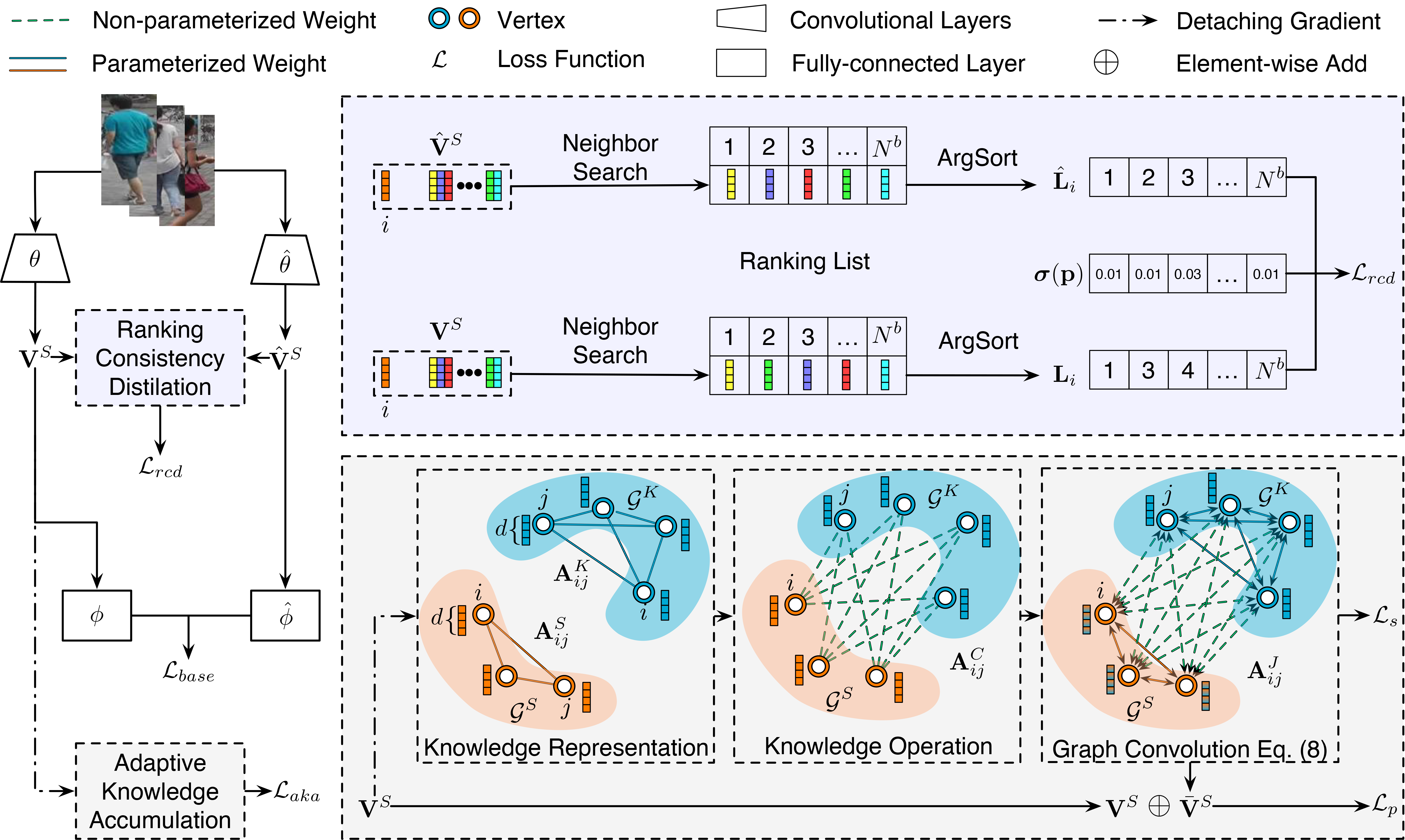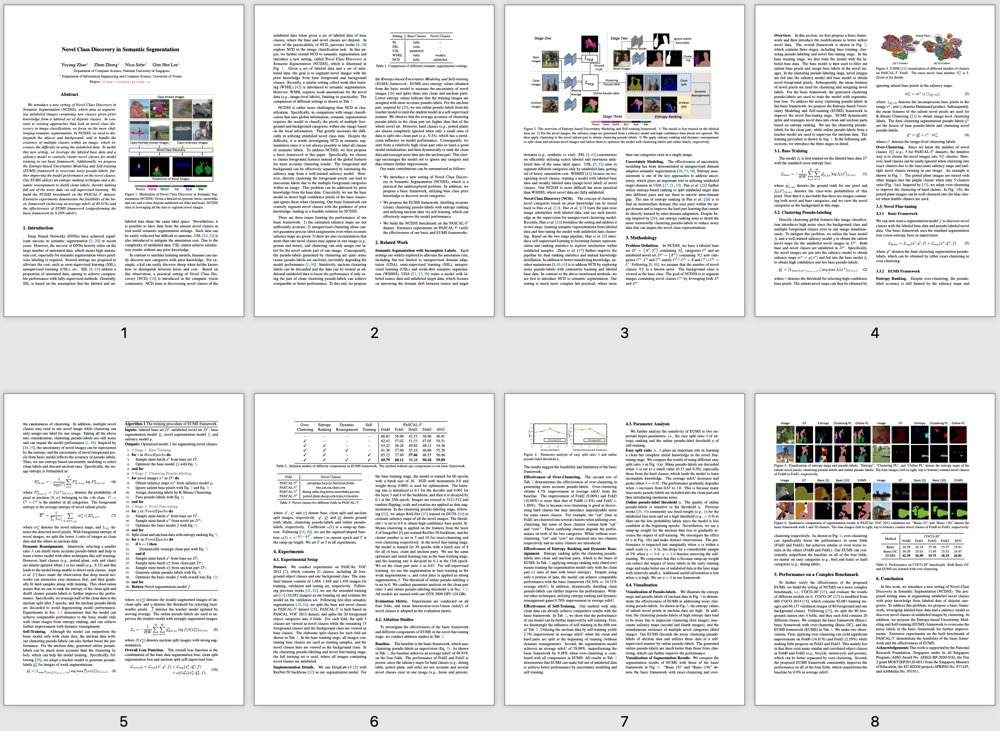A Memorizing and Generalizing Framework for
Lifelong Person Re-Identification
2. Department of Information Engineering and Computer Science, University of Trento

Illustration of Lifelong Person Re-Identification (LReID).
Abstract
In this paper, we introduce a challenging yet practical task for person re-identification (ReID), named lifelong person re-identification (LReID), which aims to continuously train a ReID model across multiple domains and the trained model is required to generalize well on both seen and unseen domains. It is therefore critical to learn a ReID model that can learn a generalized representation without forgetting knowledge of seen domains. In this paper, we propose a new MEmorizing and GEneralizing framework (MEGE) for LReID, which can jointly prevent the model from forgetting and improve its generalization ability. Specifically, our MEGE is composed of two novel modules, \textit{i.e.}, Adaptive Knowledge Accumulation (AKA) and differentiable Ranking Consistency Distillation (RCD). Taking inspiration from the cognitive processes in the human brain, we endow AKA with two special capacities, knowledge representation and knowledge operation by graph convolution networks. AKA can effectively mitigate catastrophic forgetting on seen domains while improving the generalization ability to unseen domains. By considering the ranking factor that is specifically important in ReID, RCD is designed to distill the ranking knowledge in a differentiable manner, which can further prevent the catastrophic forgetting. To supporting the study of LReID, we build a new and large-scale benchmark with two practical evaluation protocols that consider the metrics of non-forgetting and generalization. Experiments demonstrate that 1) our MEGE framework can effectively improve the performance on seen and unseen domains under the domain-incremental learning constraint, and that 2) the proposed MEGE outperforms state-of-the-art competitors by large margins.
Method Overview

Overview of Entropy-based Uncertainty Modeling and Self-training framework.
